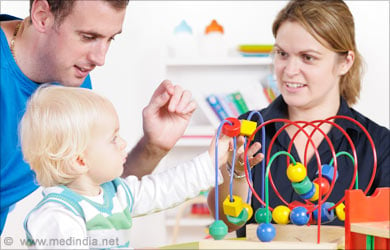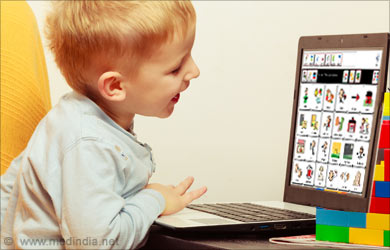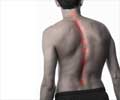Communication Options for Cerebral Palsy
Various communication options are available for the individuals with cerebral palsy, which can be introduced to help the child to be socially active.
The key to work out an effective communication strategy for a child with cerebral palsy is to identify the child’s ability to use his facial muscles and limbs. If the child is able to talk, but is slow and slurred, the listeners must be patient and allow them to complete what they want to communicate. A speech therapist can work towards improving the phonation (use of voice) and articulation (production of various sounds using oral muscles).

For children who are severely affected, other communication strategies like sign language electronic devices, homemade picture charts and communication boards can be used. Selecting an option from the various communication methods is personalized and based on the individual’s ability to use the muscles required. For example, if facial muscles are affected, hands can be used for expressing through sign language. If all limbs and face are affected, a pointer can be attached to the child’s head for him or her to point out the picture or words in his personalized communication board.
Alternative and Augmentative Communication for Children with Cerebral Palsy
Alternative and Augmentative Communication (AAC) refers to some methods of communication that can be used to supplement verbal communication in persons with disabilities. AAC methods can be unaided such as sign language, gestures, facial expressions, etc or aided as in writing, picture boards, symbols, etc.

Unaided communication can be personalized, but the understanding can be limited to parents, siblings, caregivers and the school staff. Looking up to say ‘yes’ and down for ‘no’, using eye blinks to communicate ‘yes’ or ‘no’, etc are some of the examples for unaided communication. The child can be taught particular gestures for expressing other needs such as hunger, thirst, toilet, colour preferences, likes and dislikes, approval and many other needs, wants, feelings and opinions.
Aided methods of communication are further classified as low-cost and high-tech instruments. The low-tech devices include a communication boards or books, from which the user selects letters, words, phrases, pictures etc to communicate to the listener. The user can point to the appropriate place using light pointer, finger, nose, mouth stick or even eye-gaze, based on the child’s ability to use his body parts. Indications of yes or no can also be done if the listener understands the child’s needs and points to appropriate pictures or symbols.

High-tech AAC aids include those that permit storage or retrieval or electronic messages to speech generating devices. These kinds of devices enable the individual to communicate almost verbally and become active participants in communication interactions. The devices’ speech output can be either digitalized or synthesized, customized to suit the individual’s needs.
Identifying the limitations of the child with cerebral palsy, managing the associated problems and conditions, maximizing the use of available physical abilities and use of best communicative strategies can help the individuals with cerebral palsy to overcome their handicaps, make choices, speak their minds and fully participate in life.







